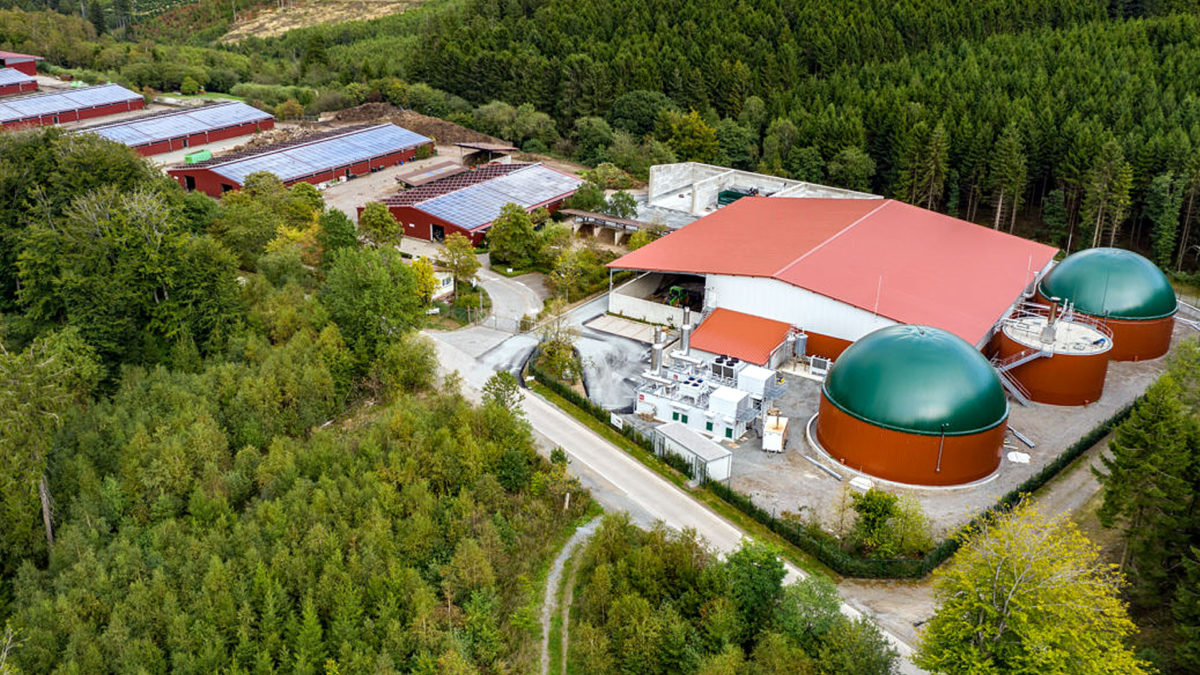Researchers from the University of Valladolid and the Technical University of Madrid in Spain have proposed to hybridize biogas and biomethane production systems from cattle manure anaerobic digestion (AD) with photovoltaic-thermal (PVT) energy.
An anaerobic digestion plant is a power facility that can produce methane from manure.
“Decentralized energy production systems provide opportunities for resource exploitation locally, together with energy self-sufficiency in remote communities,” the scientists explained, noting that using solar panels for both electricity and heat in the anaerobic digestion of organic wastes might be suitable for isolated areas. “The decentralization strategy will require new digester configurations be able to operate with minimum operational costs in areas with limited energy connectivity, where the organic substrates are produced.”
The PVT system conceived by the group is connected to a combiner box with batteries, and it is used to operate the digester, pumps, mixers, and the biogas upgrading unit. The latter is used for producing biomethane and is turned off during periods of low irradiation levels.
The thermal energy collected by the panels is utilized to increase the temperature of the digester until optimal conditions of 35 C are reached. The heat is then transferred by a network of tubes, allowing hot fluid from solar panels and cold fluid from within the anaerobic digester to circulate.
To analyze the novel decentralized production system, scientists have assumed it operates in a medium-sized pig farm with 2,000 heads, using their manure. According to the scientists' calculations, such an operation will have a daily electric consumption of 38.3 kWh. The upgrading unit, they said, will demand 0.125 kWh/m3 biogas.
Using a set of equations, the research group has assessed the production of the set-up under varied climatic conditions in five global locations: Soria (Spain), Iowa (United States), Odense (Denmark), Santa Catarina (Brazil), and Laixi (China). Their irradiation values and ambient air temperatures were obtained from the Solargis software.
The analysis showed that Odense had the lowest irradiance and was the only place where the system was unable to meet the necessary electricity demand. “In the rest of the locations, only a part of the production, in greater or lesser quantity, would be used to maintain the temperature of the digester, but in any case, ensuring its operability and the biomethane generation through the year,” the scientists explained.
The annual volumes of biomethane were at values between 14,107 m3 for Odense and 29,607 m3 for Santa Catarina. The annual production in Soria, Iowa, and Laixi is similar, averaging 25,000 m3. Concerning the use of biomethane in those areas, the yearly biomethane savings were up to 65%.
An economic analysis of the levelized cost of electricity (LCOE) concerning 20 years of operation found an average value of $0.045/kWh for all five locations. “The economic study revealed that the PV/T hybrid solar technology proposed for enhancing the conventional anaerobic digester boasts a remarkably competitive LCOE value when compared to other energy sector technologies,” the researchers said.
They introduced their assessments in the paper “Hybridization of anaerobic digestion with solar energy: A solution for isolated livestock farms,” published in Energy Conversion and Management: X.
This content is protected by copyright and may not be reused. If you want to cooperate with us and would like to reuse some of our content, please contact: editors@pv-magazine.com.



By submitting this form you agree to pv magazine using your data for the purposes of publishing your comment.
Your personal data will only be disclosed or otherwise transmitted to third parties for the purposes of spam filtering or if this is necessary for technical maintenance of the website. Any other transfer to third parties will not take place unless this is justified on the basis of applicable data protection regulations or if pv magazine is legally obliged to do so.
You may revoke this consent at any time with effect for the future, in which case your personal data will be deleted immediately. Otherwise, your data will be deleted if pv magazine has processed your request or the purpose of data storage is fulfilled.
Further information on data privacy can be found in our Data Protection Policy.